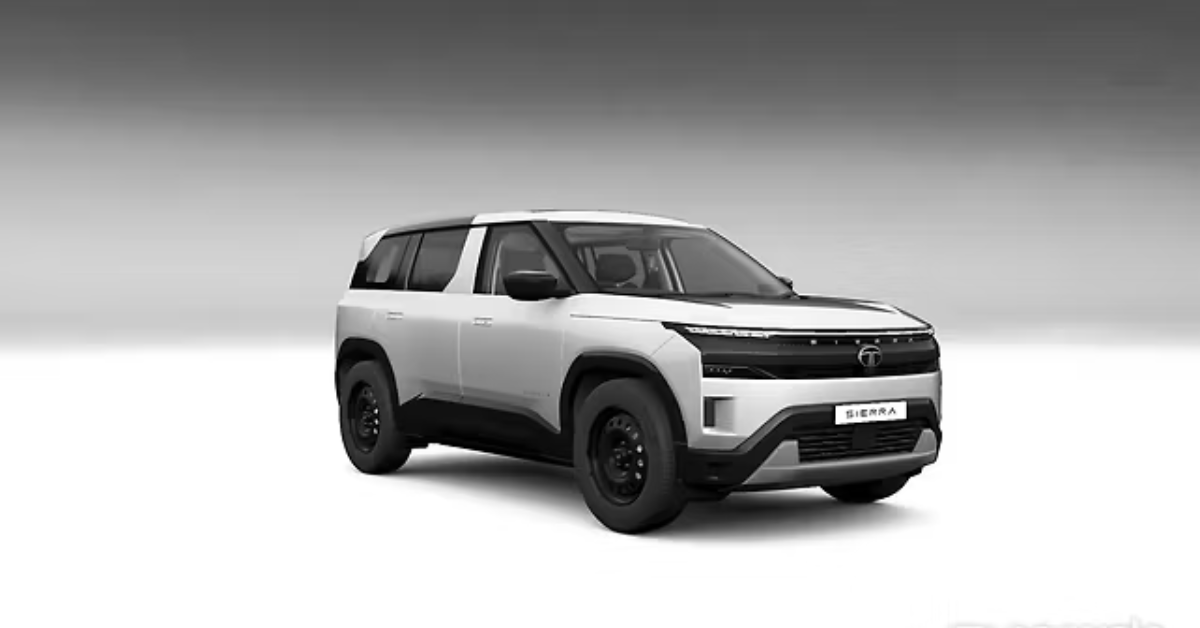Tata Motors is all set to change the Indian electric vehicle market with the re-introduction of the Tata Nano, now in an electric avatar. Priced at just ₹1.25 lakh, the Tata Nano EV aims to bring green mobility within the reach of the common man. With a 250 KM driving range on a single charge, it is expected to challenge entry-level petrol cars like the Maruti Alto and Renault Kwid.
This affordable EV could become a game-changer for budget-conscious buyers, first-time car owners, and those looking for a low-cost city commuter with zero tailpipe emissions.
A Familiar Design with a Modern Twist
While the Nano EV retains the compact and practical form of the original Tata Nano, it comes with fresh styling cues to match today’s EV trends.
- Front Look: Sleeker grille-less design with EV-specific badging.
- Lighting: LED headlamps and DRLs for better visibility.
- Body Lines: Smooth, aerodynamic shape for improved efficiency.
- Wheels: Lightweight alloys or steel rims with EV-specific covers.
- Rear Design: Compact tail lamps with a cleaner bumper design.
Compact Yet Practical Cabin
The Tata Nano EV offers a surprisingly spacious cabin for a small car, thanks to its tall-boy design. Tata has ensured that comfort is not compromised, even in this budget-friendly EV.
- Seating: Comfortable fabric seats with decent cushioning.
- Infotainment: Touchscreen infotainment system with Bluetooth connectivity (in higher variants).
- AC: Manual or optional automatic AC for comfort in Indian summers.
- Storage: Ample boot space for a compact car, along with door pockets and cup holders.
Performance & Battery Details
The heart of the Tata Nano EV is its electric powertrain, designed for daily city commutes with enough range for occasional long drives.
- Battery Pack: Lithium-ion battery (capacity expected around 15–20 kWh).
- Range: Up to 250 KM on a single charge (ideal conditions).
- Charging Time: 6–8 hours on a standard home charger; 60–90 minutes on a fast charger (if supported).
- Top Speed: Around 80–100 km/h, perfect for city driving.
- Motor Power: Expected 25–35 hp for smooth and efficient performance.
Safety Features
Although designed to be affordable, Tata is expected to include basic safety features in the Nano EV.
- Dual airbags in higher variants.
- ABS with EBD for stable braking.
- Seat belt reminder and rear parking sensors.
- Strong body shell based on Tata’s safety-first approach.
Why Tata Nano EV Could Shake the Market
The biggest reason for excitement around the Nano EV is its price. At just ₹1.25 lakh, it is cheaper than many petrol bikes and scooters on the market. Here’s why it could be a massive hit:
- Ultra-Low Cost – Almost half the price of other entry-level EVs in India.
- Low Running Cost – Around ₹1 per km compared to ₹6–7 per km for petrol cars.
- Eco-Friendly – Zero tailpipe emissions.
- Easy Maintenance – Fewer moving parts compared to petrol engines.
- Perfect for Cities – Compact size makes it easy to park and maneuver.
Comparison with Maruti Alto & Other Budget Cars
| Feature | Tata Nano EV | Maruti Alto (Petrol) | Renault Kwid (Petrol) |
|---|---|---|---|
| Price (Base Model) | ₹1.25 Lakh | ₹3.5 Lakh+ | ₹4 Lakh+ |
| Fuel Type | Electric | Petrol | Petrol |
| Range/Mileage | 250 KM | 22–25 km/l | 21–22 km/l |
| Running Cost (per km) | ₹1 | ₹6–7 | ₹6–7 |
| Maintenance Cost | Low | Moderate | Moderate |
Clearly, the Nano EV has an edge for urban buyers looking for affordability and efficiency.
Target Buyers for Tata Nano EV
The Nano EV is expected to appeal to:
- First-time car buyers who want a budget-friendly option.
- Students and young professionals needing an easy city commuter.
- Families looking for a second car for daily errands.
- Eco-conscious buyers who want to reduce their carbon footprint.
Final Verdict
The Tata Nano EV could be the “People’s Car” of the EV era. With an unbeatable price of ₹1.25 lakh, a 250 KM range, and Tata’s brand trust, it’s positioned to attract a huge audience — from two-wheeler upgraders to budget-conscious families.
If Tata delivers on its promise of affordability without compromising safety and quality, the Nano EV might just redefine the entry-level car segment in India, much like the original Nano did — but this time, in an electric way.





